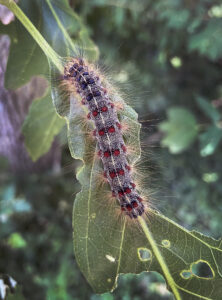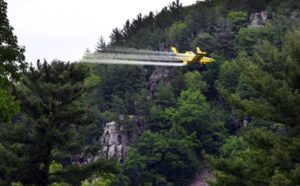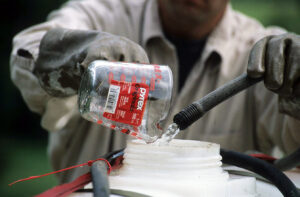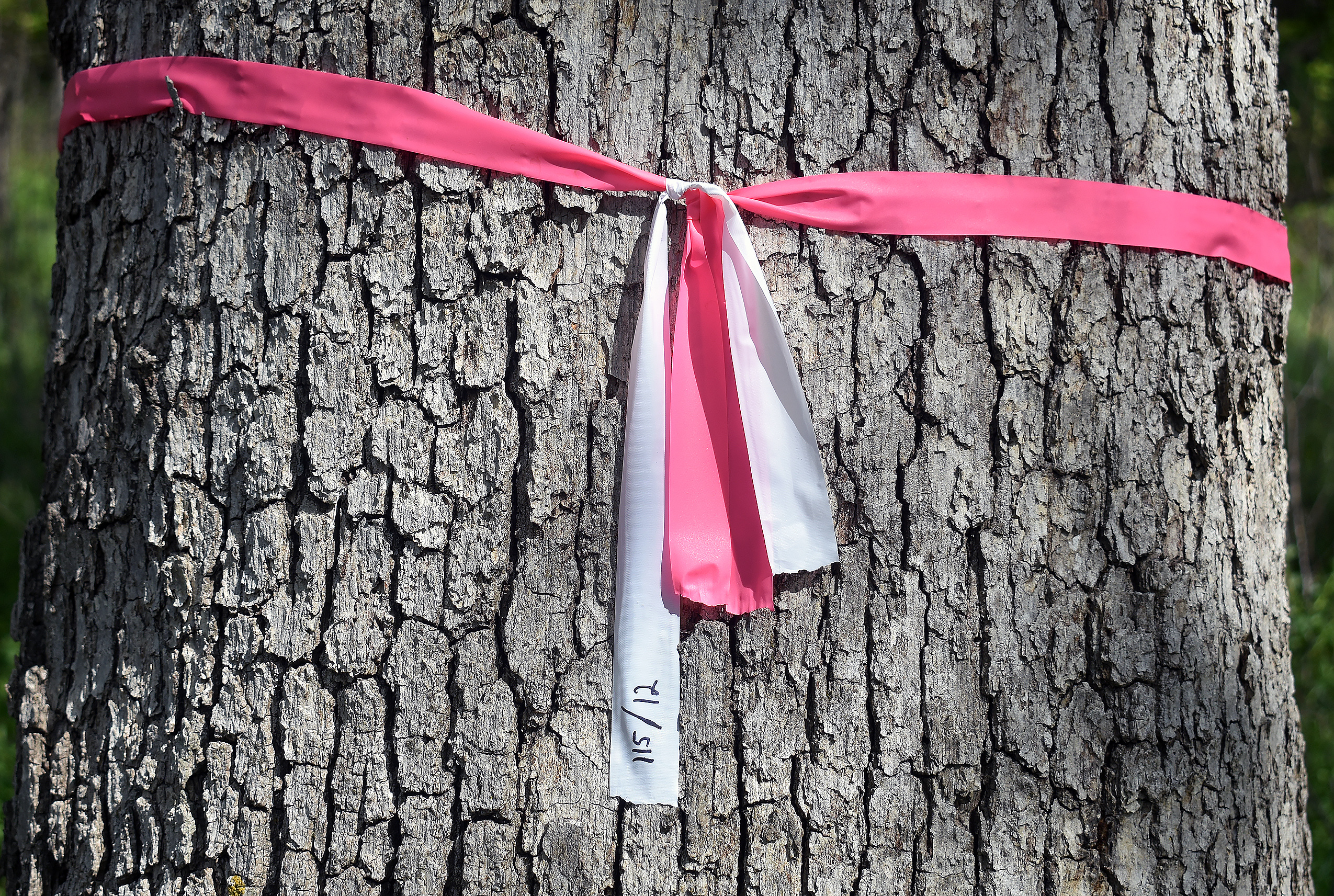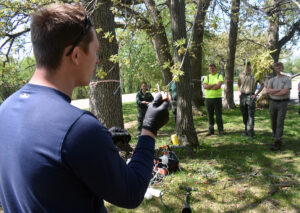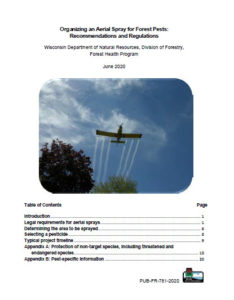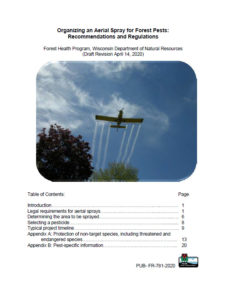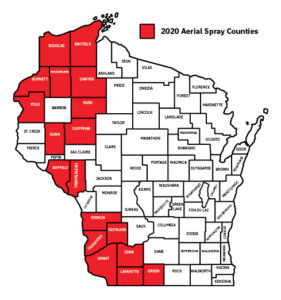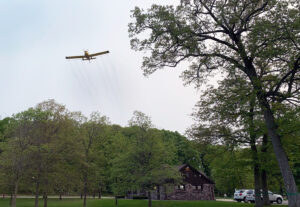
An airplane sprays pesticide over trees at Devils Lake State Park in Sauk County to help in the control of spongy moth caterpillars. / Photo Credit: Sue Johansen, Wisconsin DNR
By Art Kabelowsky, DNR Outreach and Communications
Arthur.Kabelowsky@wisconsin.gov or 608-335-0167
The Wisconsin Department of Natural Resources (DNR) has finalized aerial spraying plans for its 2025 Spongy Moth Suppression Program, with maps for the five selected treatment areas available online.
The treatment sites are at three state parks in Juneau, Marinette and Sauk counties that are highly valued for their recreational use. A total of 544 acres of trees will be treated with an aerial spray of “Foray” bacterial insecticide containing Bacillus thuringiensis var. kurstaki.
Continue reading “2025 DNR Spongy Moth Spray Plans Announced”

